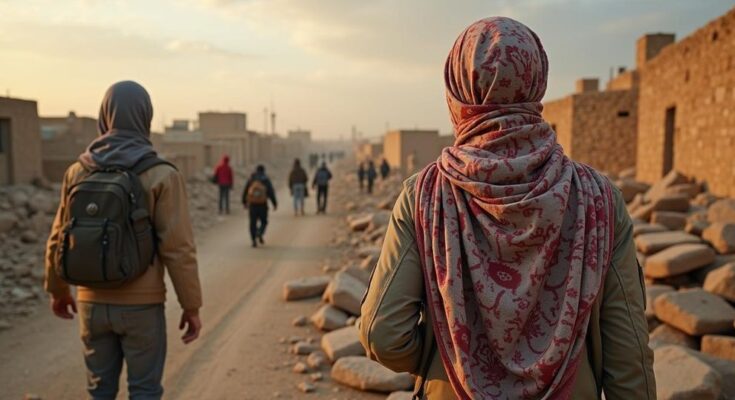The conflict between Israel and Hezbollah in Lebanon is deeply impacting young lives as violence escalates. Casualties are mounting, with reports indicating significant death and injury tolls in both Gaza and Lebanon. Hospitals are struggling to treat the young victims, including those severely hurt in the crossfire. This situation highlights the ongoing humanitarian crisis and the emotional toll on the affected populations, especially children, who are left to grapple with trauma and loss.
The ongoing conflict between Israel and Hezbollah in Lebanon is significantly affecting the lives of young people as violence escalates across the Middle East. Over the weekend, this warfare, closely linked to the brutal war occurring in the Gaza Strip, resulted in casualties on both sides of the Israel-Lebanon border. In the Gaza Strip, health officials reported a staggering death toll of nearly 42,300, with approximately 99,000 individuals injured due to hostilities that commenced after Hamas’s attack on October 7, 2023. In parallel, Israeli military operations shifted focus to the northern front, impacting Lebanon severely. Reports indicate that more than 2,300 individuals have been killed in Lebanon since this shift, with the health ministry documenting 51 fatalities just on one recent Sunday. Israeli forces have predominantly targeted Hezbollah’s strongholds in southern Lebanon, with airstrikes occurring in various locations, including the Bekaa Valley, often without prior warning. The humanitarian ramifications of these attacks were starkly illustrated during a recent visit by CBS News to Rayak Hospital, where junior patients like 16-year-old Ali Jaddouh are facing the grim realities of war. Medical staff at the hospital described the severity of injuries among children, with Ali recounting the horror of losing his leg and hearing of his family’s misfortunes after an airstrike struck near his home. His experience reflects the broader tragedy affecting countless families in the region. Health professionals, such as Nurse Mountaha Mkahal, are grappling with the moral and emotional weight of their duties during this crisis. Mkahal candidly expressed the difficulty of seeing injured children, articulating a hope that these young victims of violence might recover despite the overwhelming nature of their suffering. The emotional distress caused by the conflict leaves many children like Ali Jaddouh grappling with feelings of fear and frustration, exacerbating the nightmare they inadvertently became a part of. In this context of relentless violence, Ali’s poignant statement, “May God take revenge,” encapsulates the despair and anguish felt by many young individuals whose lives have been irrevocably changed by this war.
The Israel-Hezbollah conflict has surged amid broader hostilities involving the Palestinian territories, primarily Gaza, where violence has persisted since the onset of the Israeli military response to Hamas’s actions. As the situation evolves, both domestic and international reactions to the militarized engagements reveal the conflict’s wider implications for regional stability. The involvement of Iranian-backed groups like Hezbollah complicates the geopolitical dynamics, making the humanitarian crisis increasingly dire as towns and communities experience extensive devastation. This complexity is underscored by the significant impact on civilian populations, particularly vulnerable groups like children who suffer severe injuries and psychological traumas that will last a lifetime.
In conclusion, the upheaval caused by the Israel-Hezbollah conflict in Lebanon highlights the tragic toll of war on innocent lives, particularly the youth who bear the brunt of violence that they did not instigate. With thousands dead and many more injured, the plight of civilians, especially children, serves as a stark reminder of the humanitarian crises that arise in armed conflicts. The testimonies of survivors like Ali Jaddouh and the compassion shown by medical professionals reveal both the despair and resilience amid overwhelming adversity. International awareness and response are vital to alleviating the suffering endured by these communities.
Original Source: www.cbsnews.com




